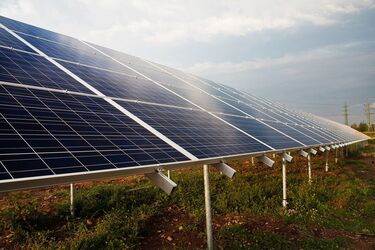Pros and cons of alternative energy sources: Things to consider

UAportal has prepared an article about the pros and cons of alternative energy sources. Learn more about the use of renewable energy.
Advantages:
1. Renewability and sustainability
Alternative energy sources, such as solar, wind, and hydroelectric power, are renewable and sustainable, meaning they do not run out and can be replenished. This reduces dependence on finite resources such as coal and oil, leading to a more stable and environmentally friendly energy supply.
2. Sustainability
The use of alternative energy sources results in the production of fewer greenhouse gases and pollutants, which helps to reduce air and water pollution and mitigate the effects of climate change.
3. Economic benefits
Investing in and utilizing alternative energy sources can create new jobs and stimulate economic growth. It also reduces dependence on imported fuels, leading to greater energy security and economic stability.
Disadvantages:
1. Instability
Alternative energy sources, such as wind and solar energy, can be unstable, meaning they are affected by weather conditions that can limit their reliability and stability as primary energy sources.
2. High initial costs
The infrastructure required for alternative energy sources such as solar panels and wind turbines can be expensive to install and maintain. This financial barrier can sometimes hinder the widespread adoption of and access to alternative energy.
3. Geographical limitations
Not all locations are suitable for the use of alternative energy sources. Factors such as wind power, sunlight, and water resources limit the feasibility of certain renewable energy technologies in certain regions.
If you want to get the latest news about the war and events in Ukraine, subscribe to our Telegram channel!
